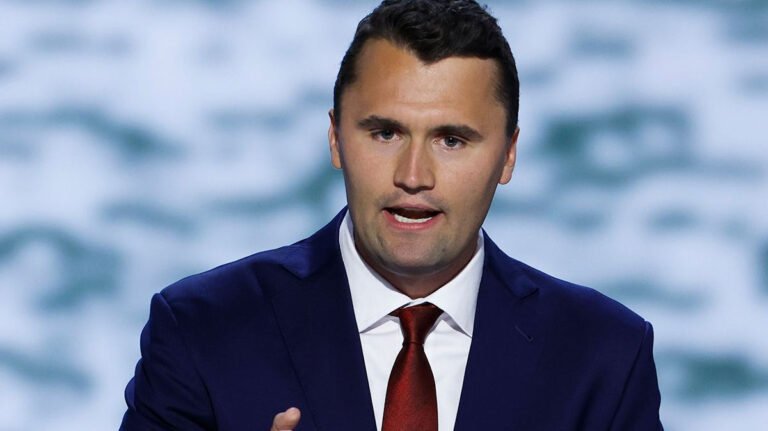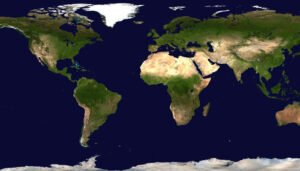Heightened Tensions as Poland Accuses Russia of Drone Attacks. Tensions in Eastern Europe escalated this week after Poland accused Russia of sending drones into its airspace. In response, France and Germany took urgent steps to boost Poland’s air defenses. The incident has drawn strong condemnation from NATO, the United Nations, and several European governments. Many see it as a serious challenge to regional stability.
Earlier, Russia Demands “Ironclad” Guarantees, NATO Exclusion for Ukraine. A Russian deputy foreign minister said in remarks that Russia would seek “ironclad” guarantees in any peace deal on Ukraine that NATO countries will expel Kiev and that Ukraine will remain neutral.
Polish Airspace Breach Triggers NATO Response

The drone incident occurred between Tuesday night and Wednesday morning. Multiple drones entered Polish airspace. Polish and NATO forces intercepted and shot down several of them. Authorities described the event as a deliberate and “unprecedented” attack, not only against Poland but also against NATO and the European Union.
Russia denied any involvement. However, Polish President Karol Nawrocki stated that the drones were likely meant to test NATO’s readiness. He made this statement while visiting an airbase in western Poland.
NATO Military Support Grows Along Eastern Border
Germany responded by increasing its contribution to NATO’s Air Policing programme. It will double the number of Eurofighter jets in Poland to four. Their mission will also be extended through the end of the year.
France also joined the effort. President Emmanuel Macron announced that three Rafale fighter jets would be deployed to support Poland and NATO’s eastern flank. Both actions reflect a renewed focus on defense and alliance unity.
Diplomatic Reactions Across Europe
Several countries summoned their Russian ambassadors to protest the incident. The Czech Republic, Sweden, and the Netherlands took diplomatic action. Leaders across Europe condemned what they saw as provocation by Moscow.
The United Nations Security Council scheduled an emergency meeting for Friday. It will review Poland’s claims that Russia violated its airspace. The meeting highlights global concern about the risk of escalation near active conflict zones.
Poland Invokes NATO’s Article 4
In a rare move, Prime Minister Donald Tusk invoked Article 4 of the NATO treaty. This article allows member countries to call urgent talks if they feel threatened. It has only been used eight times in NATO’s history.
NATO Secretary-General Mark Rutte criticized Russia’s actions as “reckless.” He added that NATO’s air defenses worked as intended.
Airspace Restrictions & Border Closures
In response to the incident, Poland tightened security near its eastern border. Civilian aircraft are now banned from flying below 3,000 meters in that area until December 9. Drone flights are also suspended, according to PAZP, the national air traffic agency.
The restrictions come as Russia and Belarus begin joint military exercises called “Zapad” (West). These drills, running from September 12 to 16, have added to Poland’s concerns. Border crossings with Belarus will be closed during the exercises.
Russia reacted strongly. Foreign Ministry spokeswoman Maria Zakharova urged Poland to reconsider what she called “destructive steps.”
EU and Global Leaders Respond
European officials issued firm condemnations of the drone incursions. Dutch Foreign Minister David van Weel warned that the breach threatens European security. Czech Foreign Minister Jan Lipavsky called it a “pure provocation.” Sweden’s Foreign Minister Maria Malmer Stenergard called the violations “unacceptable.”
China, in contrast, remained neutral. A spokesperson said the country hopes all parties resolve the dispute through dialogue. China has not directly condemned Russia’s actions since the war in Ukraine began.
Poland’s Role in the Ukraine Conflict

Poland plays a key role in supporting Ukraine. It hosts over one million Ukrainian refugees. It also serves as a main route for Western aid and military supplies headed to Kyiv. This has increased both its importance and its vulnerability within NATO.

As tension with Russia grows, Poland’s position becomes more critical. Its response, along with NATO’s actions, will shape the regional security landscape.
Green Readability in Crisis Reporting
In times of crisis, communication must be clear, calm, and precise. Green readability promotes this by using short, active sentences and accessible language. It helps governments and media deliver accurate information without overwhelming or alarming the public.
This approach supports transparency, informed decision-making, and social resilience—especially during rapidly evolving security threats.






